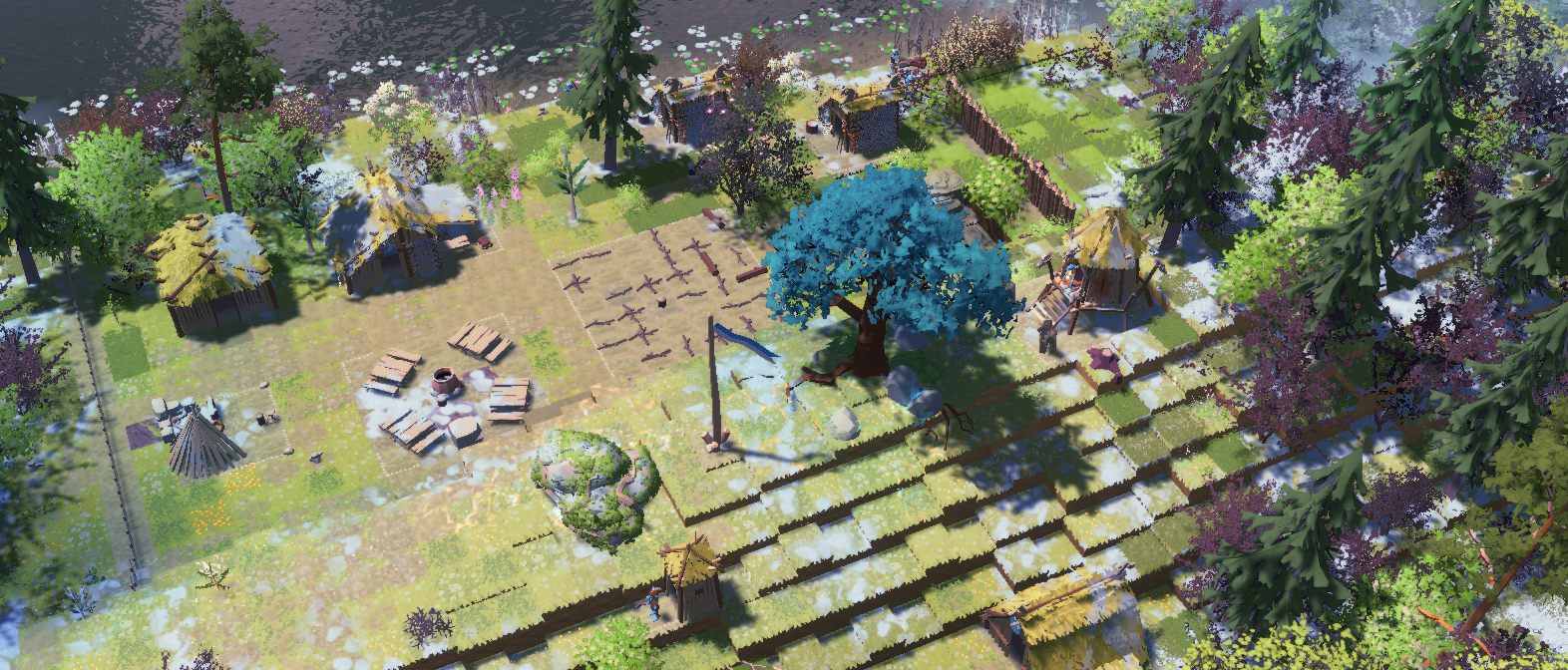The Sacrificial Tree
Thou hast from the tree descended, Glided from the aspen branches, Slippery the trunks in autumn, In the fog-days, smooth the branches. Golden friend of fen and forest, In thy fur-robes rich and beauteous, Pride of woodlands, famous Light-foot.
- the Kalevala, poem XLVI, trans. John Martin Crawford (1887)
One of the central elements of Goblin Camp is the sacrificial tree, which can be summoned by the shaman. As the goblins light bonfires and make sacrifices at Midsummer, the tree grows and levels up. The higher the level of the tree, the higher the bonuses it grants to the whole camp.

The idea of a sacred tree that receives sacrifices was long-established in Finnish culture until as late as the 20th century. Families would have special trees that they would sacrifice farm products to, or even slaughter and eat an animal, and bury the bones at the sacred tree. Many of the trees are still standing, especially in Eastern Finland, and at least recently, there were still people alive who remembered sacrifices to the trees. They tend to be lone, tall trees near farmhouses, that have been left in place. Even after the rituals were no longer practiced, some superstitions attached to the trees remained, and it was considered terribly bad luck to cut them down.
This belief in sacred trees is part of the heritage of Finnic paganism around us. As with many other Siberian peoples, the ancestors of the Finns believed that the world was like a huge tent, with a central pole holding up the sky. Sometimes this cosmic tent pole was imagined as a giant mountain at the northernmost extreme of the world. Sometimes it was seen as a huge pillar, something like the Germanic Irminsul the universalis columna quasi sustinens omnia described by Rudolf of Fulda in the 9th century. Sometimes it was seen as a tree, a giant oak like the one that blocks the sky in poem II of the Kalevala.
This world tree is very similar to Yggdrasil, the great tree of Scandinavian mythology. This is how it’s described in the Prose Edda:
Then said Gangleri: “Where is the chief abode or holy place of the gods?” Hárr answered: ‘That is at the Ash of Yggdrasill; there the gods must give judgment everyday.” Then Gangleri asked: “What is to be said concerning that place?” Then said Jafnhárr: “The Ash is greatest of all trees and best: its limbs spread out over all the world and stand above heaven.”
- the Prose Edda, XV, trans. Arthur Gilchrist Brodeur (1916)
The world tree was believed to stretch all through the universe, from the upper world to the lower. The Kalevala quote I started this post with refers to Light-foot, or the bear, descending the tree: this is a reference to the belief that bears were originally from the upper world.
As part of this tradition, the ancestors of the Finns worshipped at sacred trees or groves. We know this from evidence that includes papal bulls that refer to these groves. The Christian church tried to wipe out sacred groves and the tradition of sacrificing to trees, but as the survival of the custom until modern times shows, they were not successful.
In Goblin Camp, we draw inspiration from this tradition with our sacrificial tree. The tree functions as the center of the camp, and as it receives sacrifices, it will level up, push back the forest-cover and spread goblin culture around it. The higher the level of the tree, the more benefits it generates, like extra väki to cast spells and research points to discover new technologies.
We hope the tree serves as an impressive centerpiece of the camp, and a monument of its achievements. And we’re only just getting started with it!
